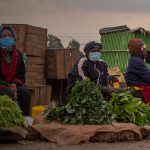COVID Impacts Food Consumption; New Country Sites; and More. Read more.
COVID-19 Policy Response (CPR) Portal
The spread of COVID-19, and the range of policy responses to contain the pandemic, exert wide-ranging effects on agri-food systems and livelihoods. To analyze the direct and indirect impacts of these responses in a comparative way, the COVID-19 Policy Response (CPR) Portal systematically captures policy responses through multiple channels, including population restrictions, social protection, trade, […]
Webinar: COVID-19 and its impact on Ethiopia’s agri-food system, food security, and nutrition
The COVID-19 crisis is creating havoc globally. Ethiopia is affected as well. While the number of COVID-19 cases is still rather low, the Government of Ethiopia has taken several measures to reduce the possible spread of the virus. However, it is yet unclear what the impact is of these measures and of the international economic […]
Why ‘home garden’ projects don’t always work: Insights from Ethiopia
New op-ed by Kalle Hirvonen and Derek Headey. Re-posted from TheConversation.com In Ethiopia, the average person eats just 42kg of fruit and vegetables per year. This is far below the WHO recommendation of 146kg per year. Fruits and vegetables are excellent sources of vitamins and minerals, vital for our body. Deficiencies can seriously affect our […]
2019 IFPRI ANNUAL REPORT
Cutting-edge research around the world is informing policies, programs, and interventions to end hunger and poverty. Read full article.
- « Previous Page
- 1
- …
- 14
- 15
- 16
- 17
- 18
- …
- 29
- Next Page »




